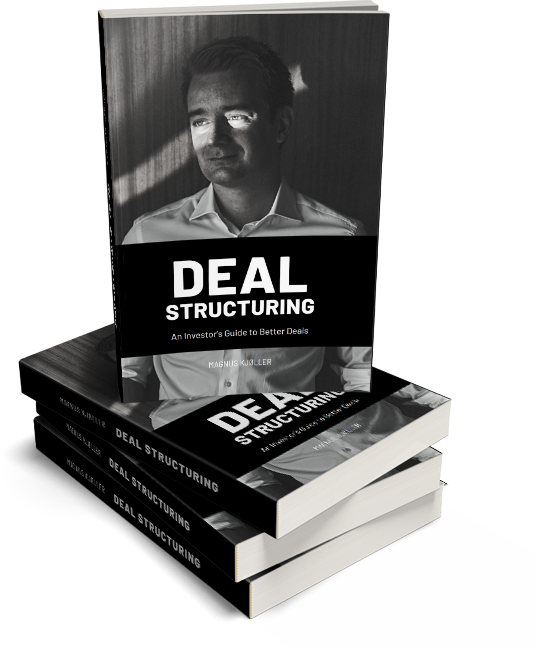Question & Answer
What Are the Most Common Mistakes Founders Make When Negotiating a Deal?

Negotiating a deal isn’t just about securing funding – it’s about setting the foundation for long-term success. Yet, many founders make critical errors that cost them equity, control, and, ultimately, the future of their company. The biggest mistake? Failing to see the deal from the investor’s perspective.
Investors aren’t just handing out capital – they’re looking for a structured return, risk protection, and alignment of interests. Founders who ignore this dynamic walk into negotiations unprepared and often walk out with less favorable terms than they could have secured.
Overvaluing the Company Too Early
Founders often come in with sky-high valuations, convinced their company is the next billion-dollar exit. The problem? Investors see risk, not just potential. An inflated valuation might feel like a win, but it can make future funding rounds nearly impossible.
A valuation that’s too high sets unrealistic expectations, making down rounds more likely. When that happens, the dilution can be brutal. Investors want to see a reasonable valuation backed by data – not just ambition.
Focusing Only on Price, Not Terms
Founders fixate on the headline valuation and how much cash they’re raising. What they often overlook? The deal terms hidden in the fine print.
Liquidation preferences, anti-dilution clauses, board control, and veto rights – these are the silent killers. A high valuation with aggressive investor protections can leave founders in a worse position than if they had taken a lower valuation with better terms.
Control matters. Understanding the full scope of the term sheet, not just the valuation, is what separates savvy founders from those who regret their deals.
Failing to Build Competitive Tension
Walking into a negotiation with one investor and no alternatives? That’s a weak position. Investors can sense desperation. Without competition, they dictate terms.
The best deals happen when multiple investors are interested. It forces better terms, improves valuation, and shifts leverage back to the founder. Even if a founder has a preferred investor, keeping other options open changes the power dynamics in the negotiation.
Underestimating Investor Incentives
Investors aren’t just writing checks – they have their own return targets, fund timelines, and risk tolerance levels. Founders who fail to recognize these incentives often structure deals that conflict with investor priorities.
For example, a venture capital firm with a 10-year fund cycle wants liquidity within that window. If a founder builds a business that needs 15 years to reach maturity, there’s a mismatch. That misalignment can lead to pressure for premature exits, unnecessary pivots, or forced down rounds.
Founders need to understand not just what they want, but what investors need. Deals work best when incentives are aligned.
Ignoring Dilution Until It’s Too Late
Equity feels cheap in the early days. Founders often give away large portions without thinking about future rounds. The problem? By the time they realize their mistake, they own far less than they expected.
Small percentages compound over time. A founder who starts with 100% and gives away 20% in the first round might think they’re still in control. But after multiple rounds of dilution, they could end up with less than 20%, struggling to have a meaningful say in their own company.
Raising capital is necessary, but structuring it in a way that preserves control is just as important.
Founders often approach negotiations from a position of need, forgetting that investors have their own goals, risk tolerances, and deal structures. The smartest founders take the time to understand the investor’s perspective, align incentives, and negotiate beyond just valuation.
In Deal Structuring, I break down real-world mistakes that have cost founders equity, control, and, in some cases, their entire business. A great deal isn’t just about securing capital – it’s about ensuring that when the company succeeds, the founder still has a meaningful stake in that success.
Founders who master this mindset don’t just raise capital – they structure deals that set them up for long-term control and financial upside.

Deal Structuring
Buy the book today and dive into practical techniques that empower you to get started immediately, navigating transactions efficiently and maximizing your success in minimizing cash requirements.
In this book, you will:
- Be introduced to the fundamentals of deal structuring
- Learn 19 proven deal models for structuring deals
- Discover 39 key elements of deal nuances
- Access 32 actionable clauses for your term sheets
- Explore 9 specific deal structures
- Receive 257 pages of invaluable insights
- Gain the distilled expertise of 20 years